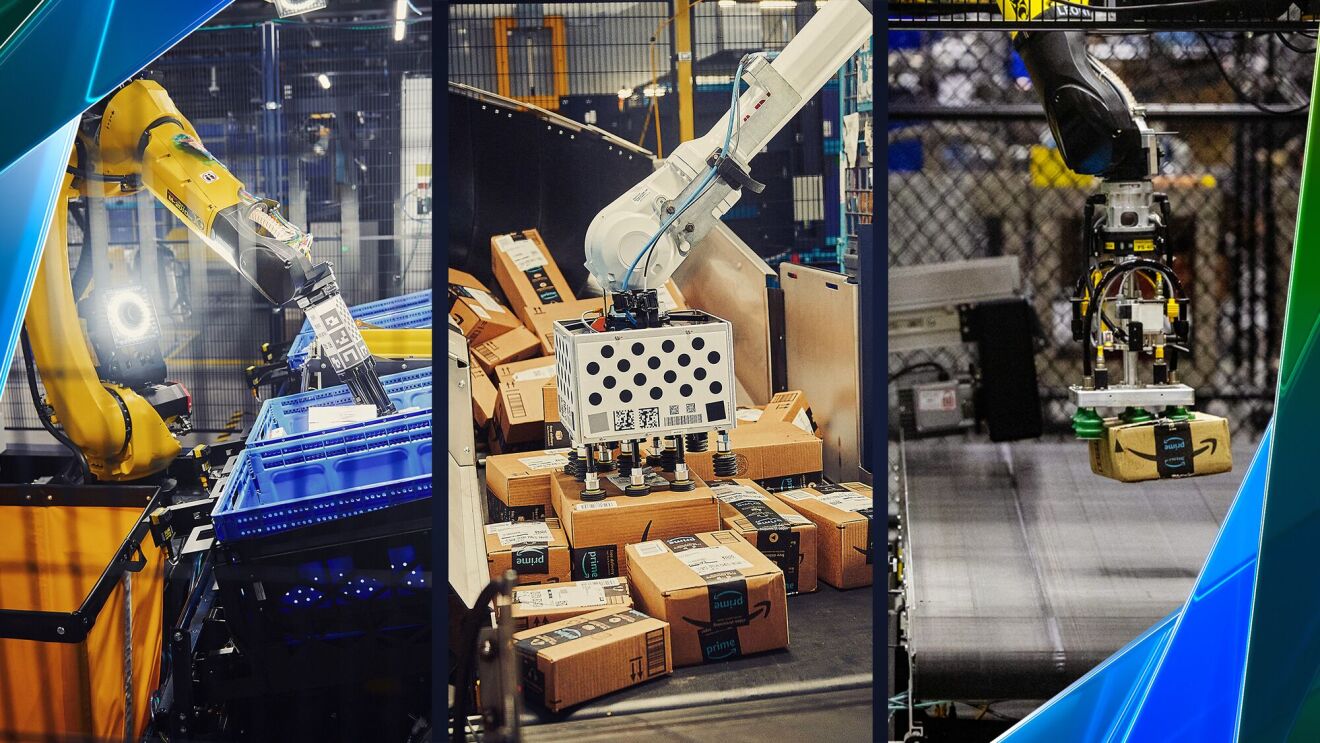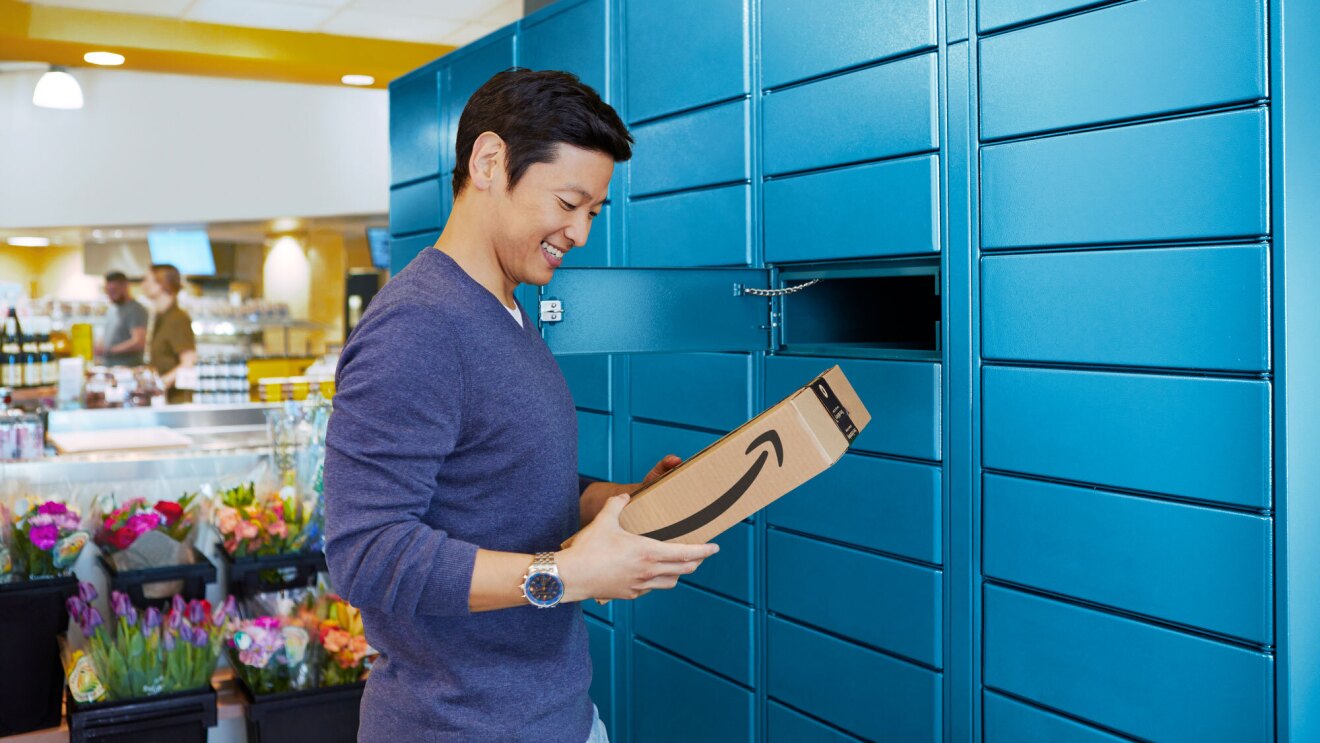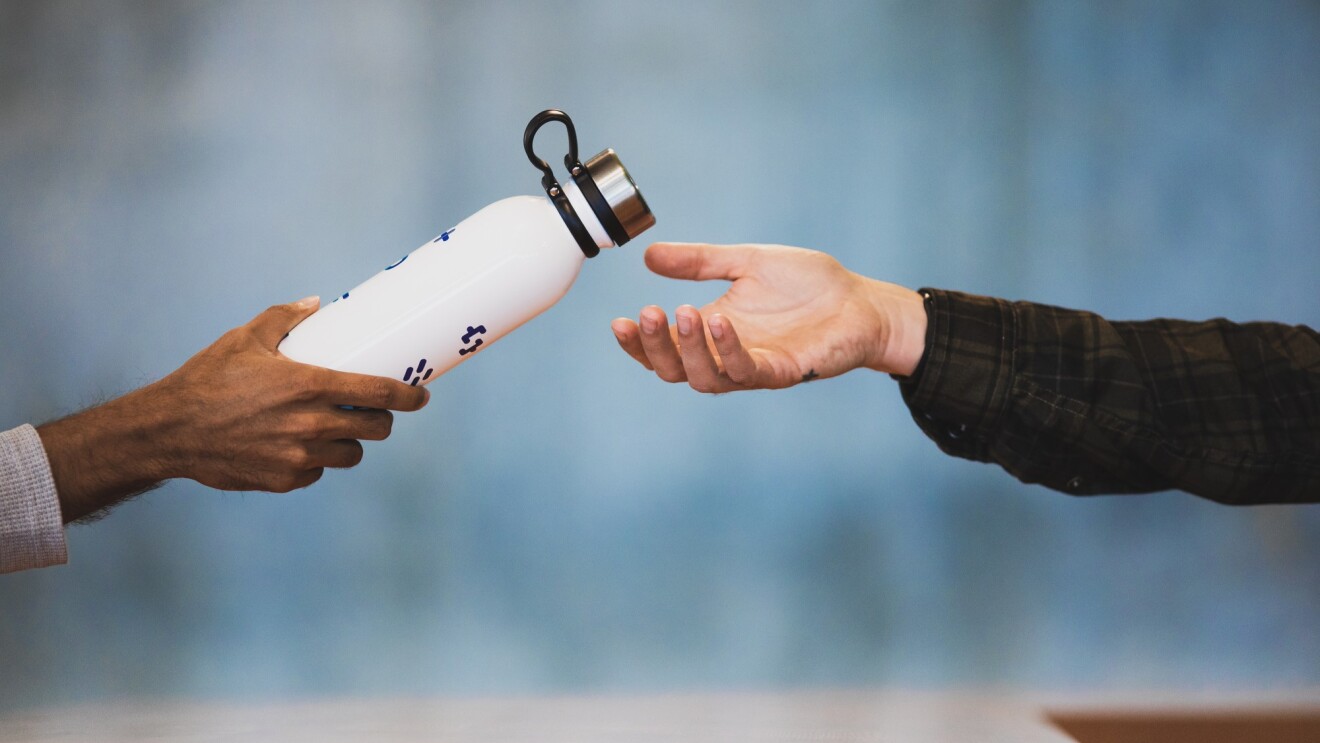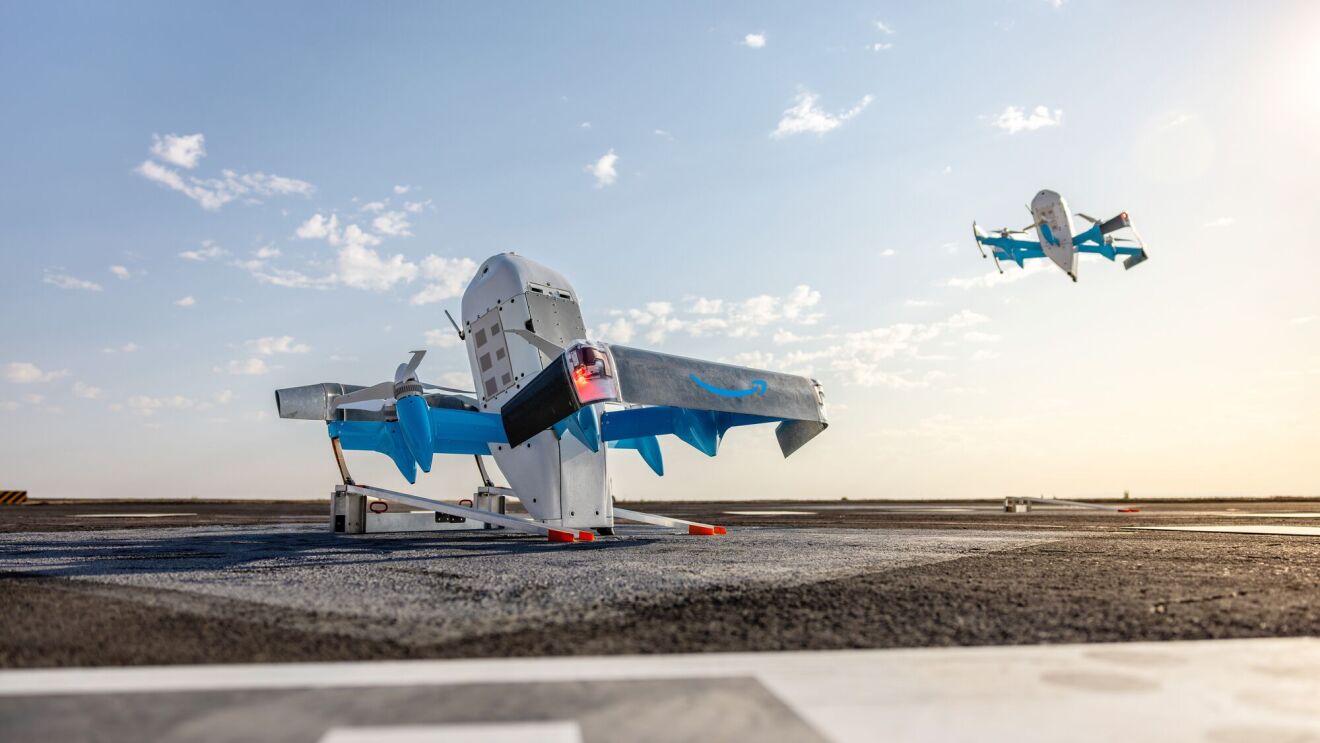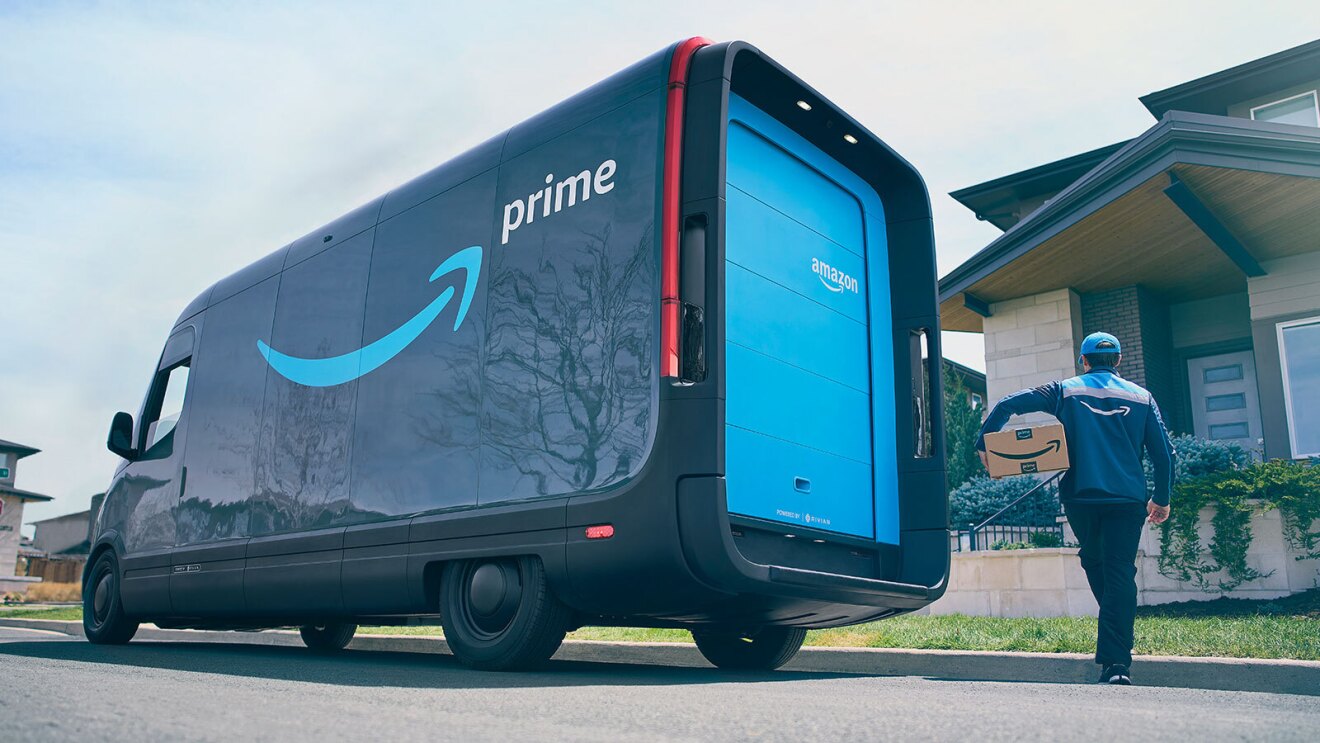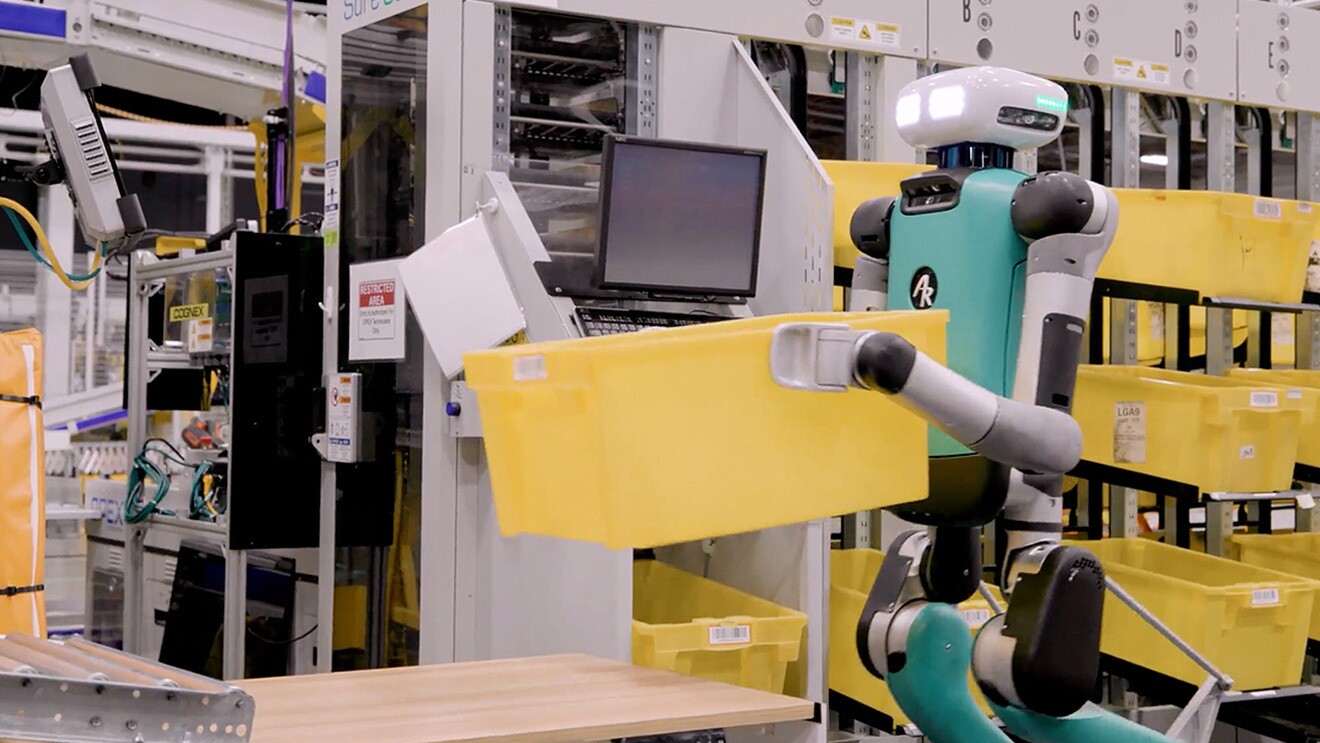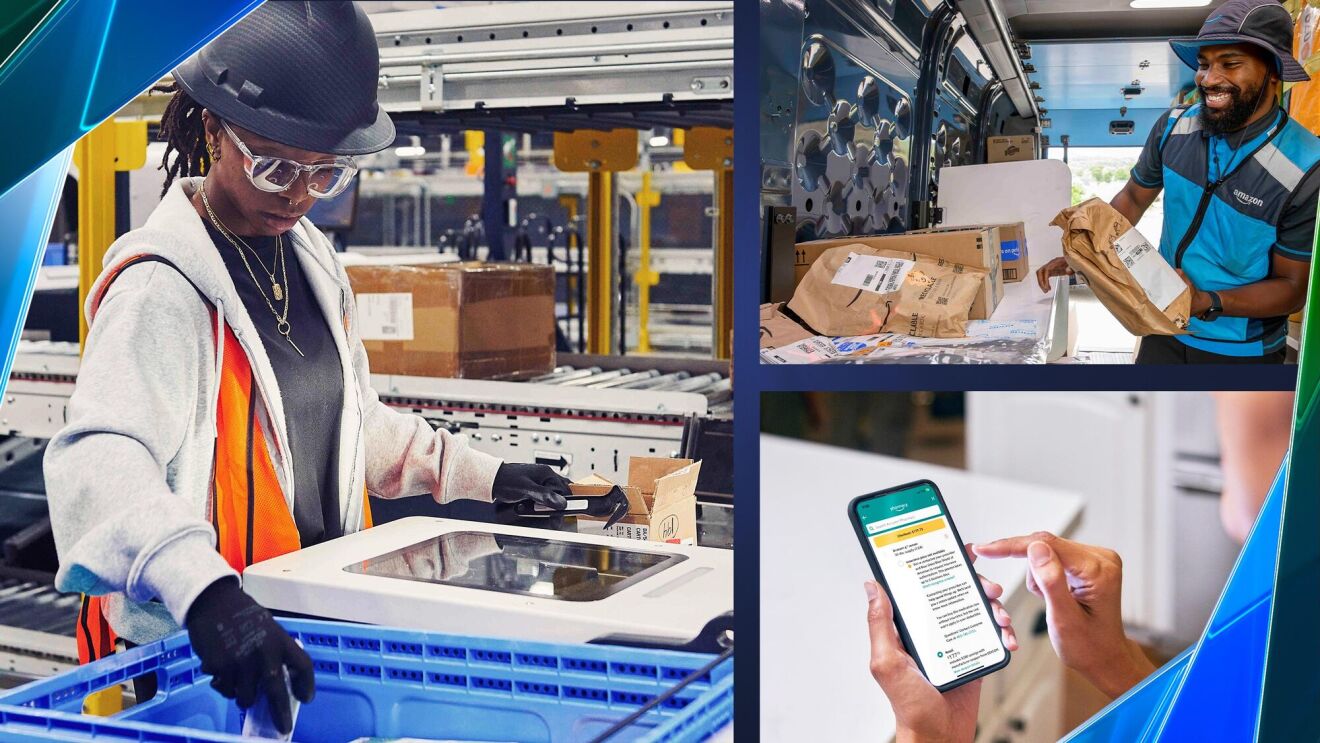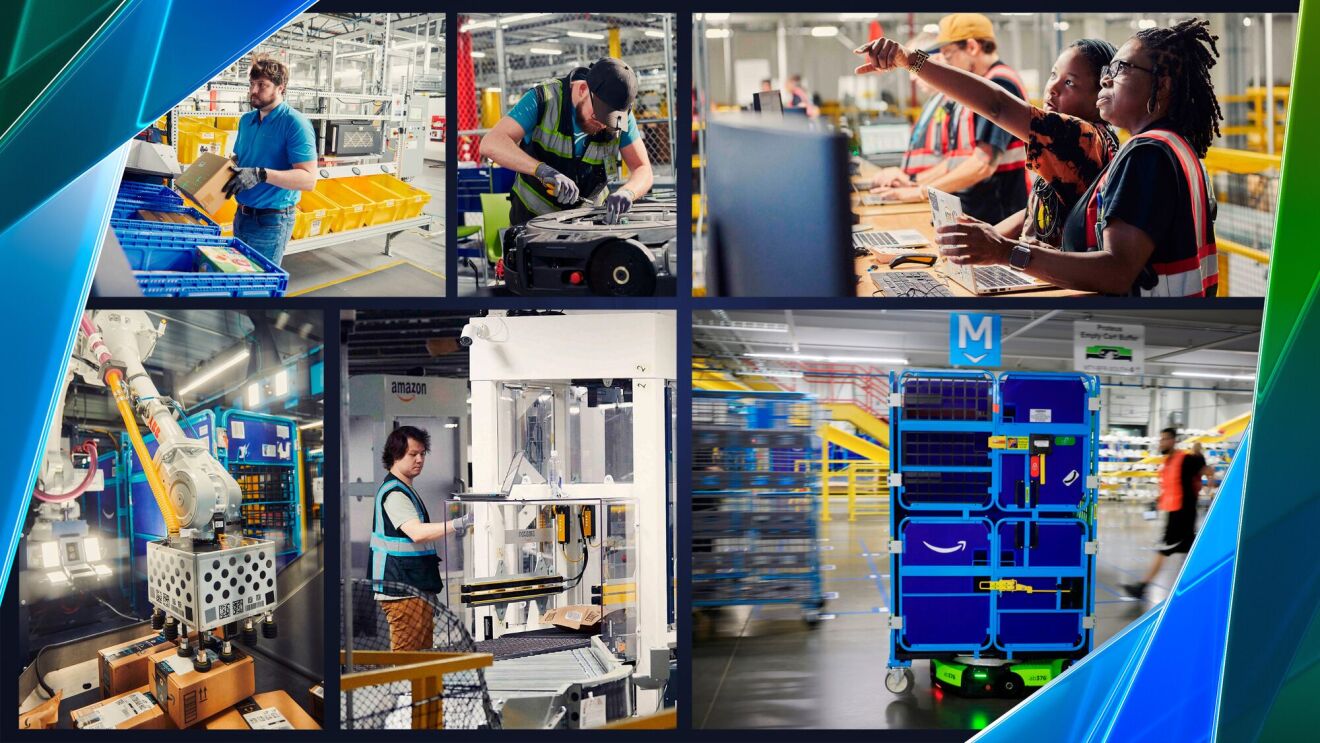With its tea shops, Halal groceries, and storefronts showcasing traditional African clothing, Minneapolis’ Cedar Riverside neighborhood feels like home to Somalis and other East Africans. Known as “Little Mogadishu,” history and heritage are represented here. For Mahammud Hirsi, who immigrated to the United States from Somalia in 2009, Little Mogadishu keeps him connected to his roots.
“It’s not easy to move to a new country. But here you have the support and understanding of a community which makes it much easier to integrate,” Hirsi said.
01 / 06
He also finds community and understanding of culture through his job at Amazon. Hirsi shares Amazon’s commitment to maintaining open and direct dialogue with employees and the communities in which it operates. As a manager working across the company’s diverse Minneapolis fulfillment network, a big part of Hirsi’s job is ensuring Amazon associates, many of whom are also East African, are supported at work. “I’m out there just to remove barriers—cultural barriers, process barriers, whatever. I am there to help them. That is where I am at my best.”
Hirsi understands the challenges of maintaining one’s identity in a big company and a new country. Hirsi supports employees as they navigate Amazon, and he works with Amazon to provide additional cultural support where needed.
“I think every person is stronger and happier when they are understood and accepted no matter who they are,” said Hirsi, who was instrumental in establishing prayer rooms within Amazon fulfillment facilities in Shakopee, Minnesota.
Muslims pray five times each day, including at work. In addition to a room with prayer rugs, one facility has areas to perform Wudu, a Muslim cleansing ritual performed before prayer that involves washing the hands, mouth, face, arms, and feet. For the formal, Friday prayer, roughly 35 Muslims at the fulfillment center pause work and gather together in a meeting room on site.
Since entering Minnesota in 2011, Amazon has opened a fulfillment center, two sortation centers, a Prime Now Hub, and a Technology Hub in the state, investing over $900 million and creating thousands of full-time jobs across the state. Many of those jobs are held by East Africans in the Minneapolis area.
Amazon works closely with community organizations including the Cedar Riverside Opportunity Center, which fosters employment and economic opportunities for residents and the larger East African community in the Minneapolis metropolitan area. “We’re excited that Amazon is engaged and supports our work to proactively connect all residents to opportunities such as procurement, transportation contracts, managerial positions, and employment that can provide a sustainable livable wage,” said Saeed Bihi, manager of the Cedar Riverside Opportunity Center. “As a result, we believe residents will have access to the resources and opportunities they need to succeed while strengthening the communities where they live and work.”
Walking the floor of the 1-million-square-foot fulfillment center, Hirsi is in the zone. More than 3,300 people work in Amazon facilities near Minneapolis. Hirsi says he knows most of them by name, and they know him.
John Statsick started as a college hire at Amazon’s fulfillment center in June of 2017. He and Hirsi worked as area managers and connected immediately. Both are in different roles now, but Statsick says Hirsi continues to mentor him. “He gave me the tools to work past communication barriers and connect with people that come from vastly different cultures than me,” said Statsick. “Mahammud’s guidance has sharpened my engagement skills, conflict management, and areas in my personal life.”
Maintaining Amazon’s inclusive culture that celebrates diversity is what Hirsi loves most about his job. “The more we understand and support each other, our culture, our traditions, the more successful we all are. That is what Amazon is about.”
01 / 03
Trending news and stories
- 4 lessons from an Amazon VP on how to be a better leader
- Viola Davis stars in the new Prime Video movie ‘G20’—here’s how to watch
- 7 family-building and fertility benefits that support Amazon employees and their families
- Amazon offers convenient new pickup and return option for customers on military installations










